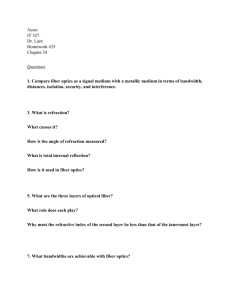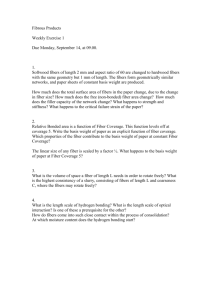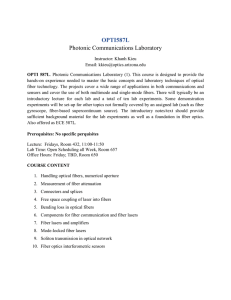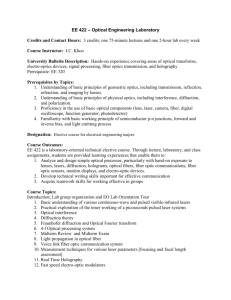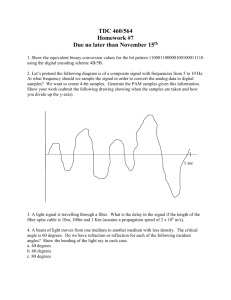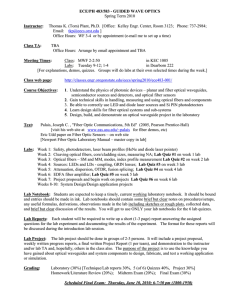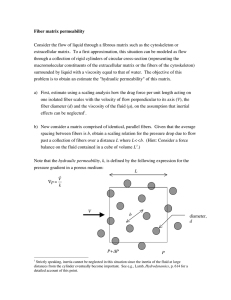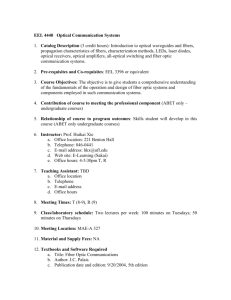Fiber optics
advertisement
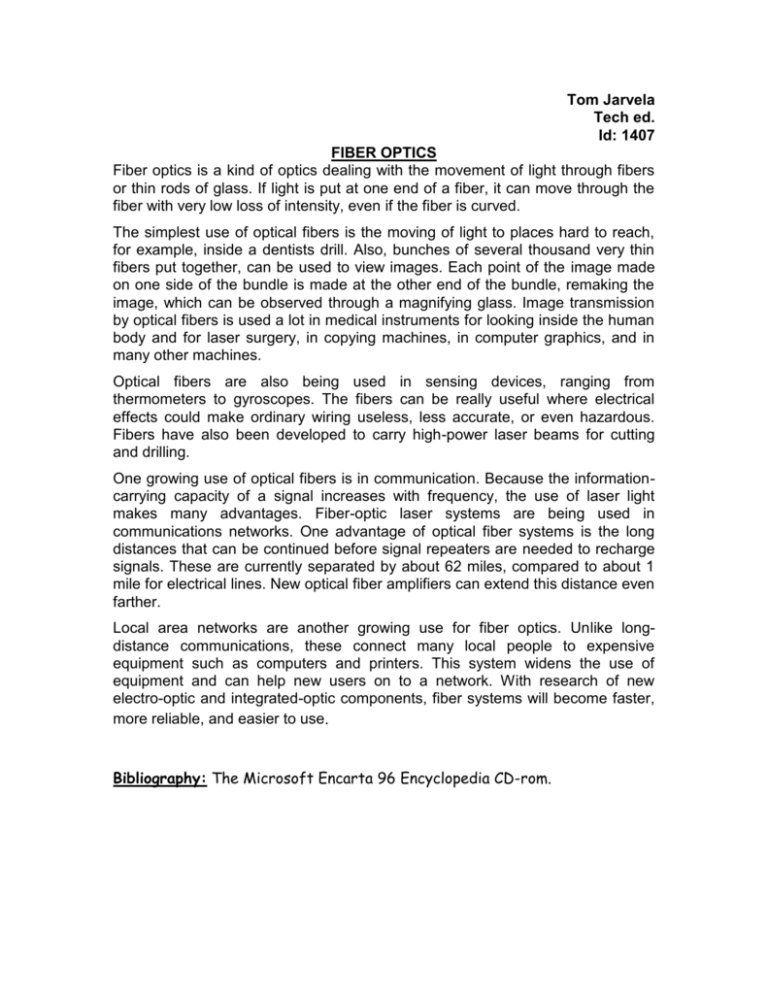
Tom Jarvela Tech ed. Id: 1407 FIBER OPTICS Fiber optics is a kind of optics dealing with the movement of light through fibers or thin rods of glass. If light is put at one end of a fiber, it can move through the fiber with very low loss of intensity, even if the fiber is curved. The simplest use of optical fibers is the moving of light to places hard to reach, for example, inside a dentists drill. Also, bunches of several thousand very thin fibers put together, can be used to view images. Each point of the image made on one side of the bundle is made at the other end of the bundle, remaking the image, which can be observed through a magnifying glass. Image transmission by optical fibers is used a lot in medical instruments for looking inside the human body and for laser surgery, in copying machines, in computer graphics, and in many other machines. Optical fibers are also being used in sensing devices, ranging from thermometers to gyroscopes. The fibers can be really useful where electrical effects could make ordinary wiring useless, less accurate, or even hazardous. Fibers have also been developed to carry high-power laser beams for cutting and drilling. One growing use of optical fibers is in communication. Because the informationcarrying capacity of a signal increases with frequency, the use of laser light makes many advantages. Fiber-optic laser systems are being used in communications networks. One advantage of optical fiber systems is the long distances that can be continued before signal repeaters are needed to recharge signals. These are currently separated by about 62 miles, compared to about 1 mile for electrical lines. New optical fiber amplifiers can extend this distance even farther. Local area networks are another growing use for fiber optics. Unlike longdistance communications, these connect many local people to expensive equipment such as computers and printers. This system widens the use of equipment and can help new users on to a network. With research of new electro-optic and integrated-optic components, fiber systems will become faster, more reliable, and easier to use. Bibliography: The Microsoft Encarta 96 Encyclopedia CD-rom.
